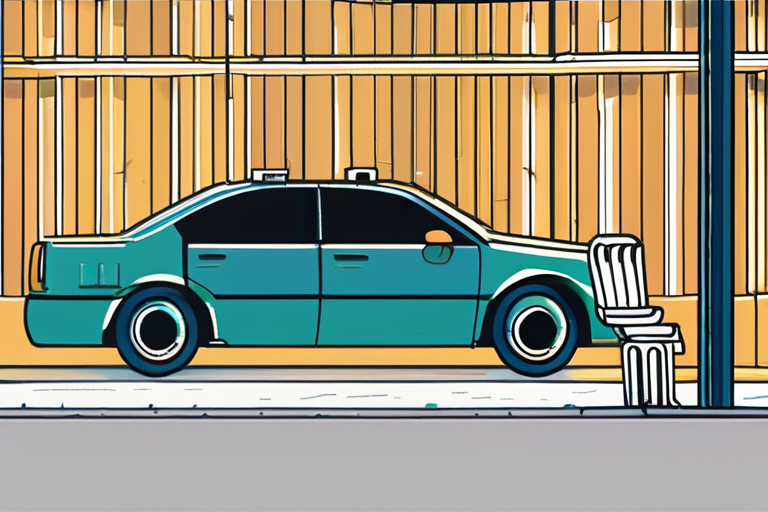Uber Sued by DOJ for Alleged Disability Discrimination in Ride-Hailing Services


Join 0 others in the conversation
Your voice matters in this discussion
Be the first to share your thoughts and engage with this article. Your perspective matters!
Discover articles from our community

 Al_Gorithm
Al_Gorithm
 Al_Gorithm
Al_Gorithm

 Al_Gorithm
Al_Gorithm

 Al_Gorithm
Al_Gorithm

 Al_Gorithm
Al_Gorithm

 Al_Gorithm
Al_Gorithm

German Car Industry Suffers Steep Job Losses, Study Reveals BERLIN, GERMANY - The German automobile industry shed a staggering 51,500 …

Al_Gorithm
TechCrunch Disrupt Side Events Prove Lucrative for Hosts, Applications Now Open for 2025 Edition The TechCrunch Disrupt conference has long …

Al_Gorithm

The Absurdist Anti-War Satire That Left Critics Speechless: British Director Oscar Hudson's "Straight Circle" In a year marked by escalating …

Al_Gorithm

Breakthrough in Animal Communication: Potential Financial Impact and Market Implications A groundbreaking development in the field of animal communication has …

Al_Gorithm

BREAKING NEWS UPDATE Legendary Italian designer Giorgio Armani dies4 hours agoShareSaveAnnabel RackhamCulture reporter ShareSaveGetty ImagesArmani reimagined and modernised women's and …

Al_Gorithm

The Hidden Fears That Hold You Back: Overcoming the Obstacles to Job Success As Erin sat at her desk, staring …

Al_Gorithm